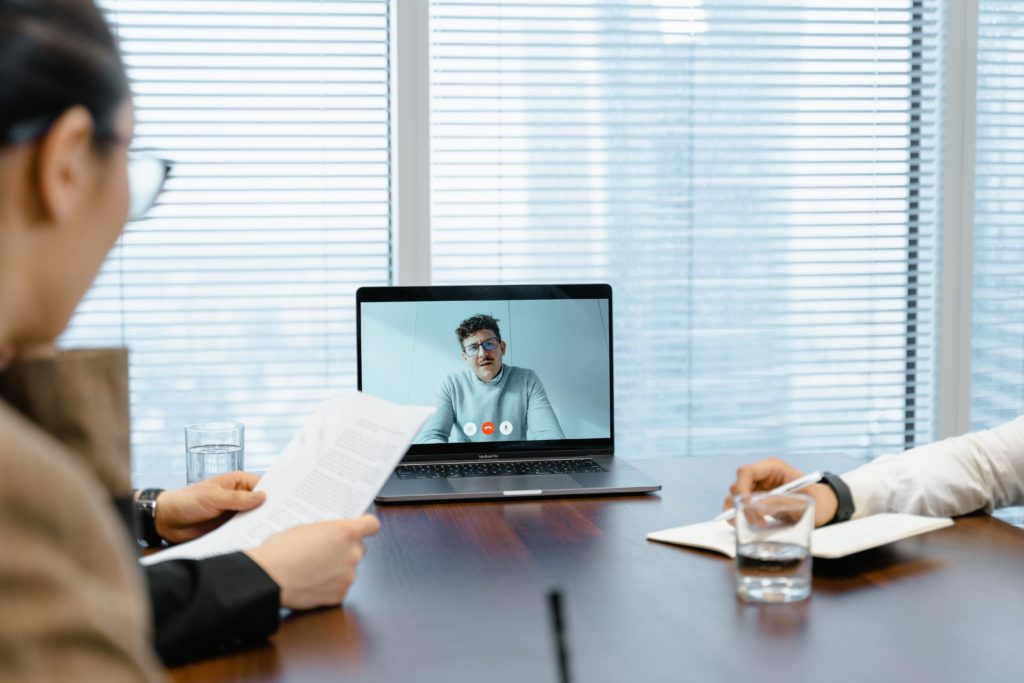
If you’ve been following our series about refining your talent acquisition process, you likely know that after our last article on how to weed out unqualified candidates, it’s time for the main event: the interview. There are many resources out there on both good and bad interview questions — but there is more to effective interviewing.
A job interview goes both ways. While the employer is gauging the applicant’s qualifications and their potential alignment with the organization’s objectives and culture, the interviewee is trying to get a feel for the type of working environment they might expect and the personality and working style of the hiring manager.
Wondering how to interview someone for a job while making a good first impression? We’ve compiled a list of tips that interviewers can use to win candidates over.
Tips for a Good Job Interview in Person
Choose a Good Location
Location, location, location — its benefit isn’t reserved only for real estate. The location of the interview sets the tone and should be chosen thoughtfully and carefully. A quiet, well-lit space that is free from distractions — without feeling sterile — is the best environment for a constructive interview.
Be Relatable and Relaxed
As serious as an interview’s outcome may be, the language you use and the direction in which you drive the conversation should always be relaxed and conversational. It’s easy to sound too direct as the interviewer, so don’t skip the small talk and informalities. Intimidation isn’t going to win anyone over, so be personable.
Come Prepared
Just as you would expect the candidate to come prepared for the interview, your level of preparedness will speak volumes to your organization’s culture and your level of interest. Here is a short checklist of essentials:
- Your list of questions
- A copy of the candidate’s résumé and (if applicable) cover letter
- A pen and notepad for taking notes
- A copy of the job description to reference
Virtual Job Interview Tips
If you’re interviewing a remote candidate, a couple of considerations can make a big difference.
Be Prepared
Preparedness, as it relates to virtual interviews, is based largely on one thing: making sure your video-call technology is working properly. Whether you’re using Zoom, Microsoft Teams, or any other conferencing platform, there’s no faster way to set a bad example than by running into technical difficulties when trying to connect to the call. Take the time to test the process so that you run the smallest risk of incident, while also being considerate of any issues the candidate may run into when connecting.
Don’t Get Distracted
It’s easy to get distracted when working from home. Whether your phone notifications are sounding or a team member is messaging you, the candidate will assume you lack interest and commitment if you allow yourself to be distracted. To be respectful, turn off any secondary monitors and set your phone to Do Not Disturb.
Conclusion
The interview is a vital part of the hiring process, and it’s a chance for both the interviewer and interviewee to distinguish themselves from their respective competition. These are just a few tips to get you started in considering how to prepare for interviews to convince top talent that your organization’s open position is worth their time, investment, and loyalty.
Of course, the questions you ask are important too, and organizations that use personality tests in hiring tend to structure their interviews with better questions. To name just a few benefits, these interviews are a more productive use of everyone’s time, they minimize the potential for unconscious bias, they make a better impression on the candidate, and they lead to more successful hires (and fewer bad hires). Stay tuned for upcoming content on how to conduct a structured interview effectively, as well as Part 6 of our series, which will cover rejection letters!